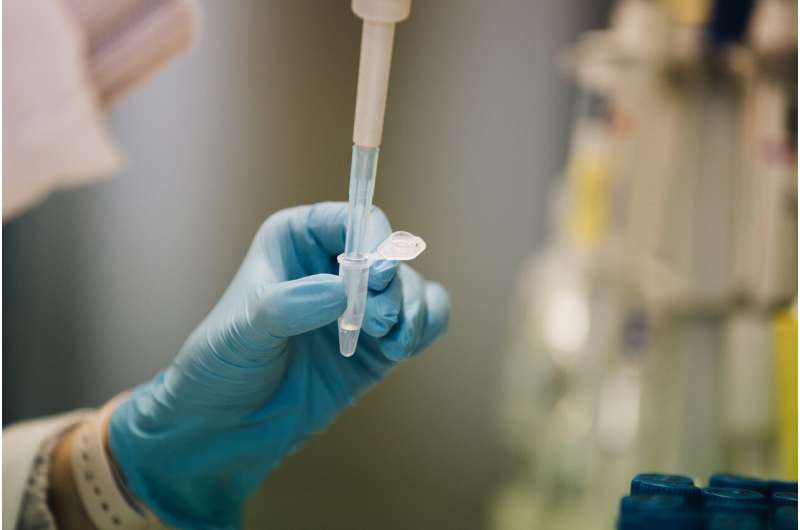This article has been reviewed according to Science X's editorial process and policies. Editors have highlighted the following attributes while ensuring the content's credibility:
fact-checked
proofread
Testicular maldescent in infertile men may be a sign of a more severe genetic syndrome

A surprisingly high fraction of infertile men presenting congenital testicular maldescent, cryptorchidism were revealed as undiagnosed cases of congenital RASopathy syndromes, as stated in a recent publication in Frontiers in Endocrinology by researchers from the University of Tartu and the Andrology Clinic of Tartu University Hospital.
Approximately 2–4% of male newborns are diagnosed with cryptorchidism—a congenital malformation in which at least one testicle is missing from the scrotum. The problem often resolves on its own within the first year of life. Still, 1% require surgical intervention between 6 to 12 months of age as cryptorchidism can be a high-risk factor for male infertility and testicular cancer.
Affected testicular descent during the 3rd trimester of pregnancy has non-genetic (e.g., premature birth, environmental factors) and genetic risk factors. Cryptorchism is one of the symptoms in many congenital developmental disorders.
The team led by Prof. Maris Laan (Institute of Biomedicine and Translational Medicine, University of Tartu, Estonia) and Prof. Margus Punab (Andrology Clinic, Tartu University Hospital, Estonia) hypothesized that men seeking infertility management include cases with undiagnosed congenital syndromes.
The study focused on RASopathy syndromes, whereby 70–80% of male cases are reported with cryptorchidism. The population prevalence of RASopathies is 1:1000. However, so far, most studies have investigated pediatric patients with developmental conditions.
This study analyzed 1,937 infertile and 640 fertile men recruited to the ESTonian ANDrology (ESTAND) and GEnetics of Male INfertility Initiative (GEMINI) cohorts, screening disease-causing variants in RASopathy-linked genes. Undiagnosed RASopathy was detected in ten ESTAND and seven GEMINI cohort subjects with various fertility issues. Almost 2/3 of these men presented cryptorchidism or other genitourinary conditions.
In the ESTAND cohort, one in 17 cryptorchid patients received a genetic diagnosis. Most affected men also presented additional congenital health problems, including heart, dermatological, neurological, and skeletal and joint disorders. In addition, several patients had been diagnosed with a rare malignancy at a young age.
This is the first study showing the high occurrence of undiagnosed RASopathy cases among men with fertility problems, especially in patients with cryptorchidism. The results indicate congenitally affected RAS/MAPK pathway as a new genetic etiology of male infertility, while also drawing attention to the necessity of broader health counseling among men with fertility issues and timely assessment of the risk of rare malignant tumors.
More information: Anna-Grete Juchnewitsch et al, Undiagnosed RASopathies in infertile men, Frontiers in Endocrinology (2024). DOI: 10.3389/fendo.2024.1312357



















